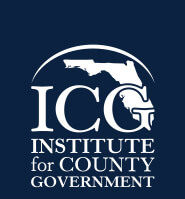
Introduction
On Wednesday, February 19th, the House Ways and Means Committee introduced WMC-01—Taxation as a committee bill. The bill is the House tax package for the current legislative session. While the committee released its “Legislative Concepts” last week, the proposed committee bill varied substantially and included several tax policy changes impacting local governments.The total statewide impact of the proposed House tax package is $109.4 million non-recurring (1st year) and $103.5 million recurring revenues. The total impact to counties of the proposed House tax package is $14.0 million non-recurring (1st year) and $10.5 million recurring revenues.
The bill provides for a 0.5 percentage point reduction in the state communications services tax.
Several provisions related to sales tax are included:
- A reduction in the tax rate for commercial property rentals (business rent tax) from 5.5% to 5.4%;
- A three-day “back-to-school” tax holiday in early August 2020 for certain clothing, school supplies, and personal computers; and a seven-day “disaster preparedness” tax holiday in May and June of 2020 for specified disaster preparedness items;
- A repeal of the Sports Development Program;
- A change in distributions made under the Tax Collection Enforcement Diversion Program;
- Future sunset of the Charter County and Regional Transportation System Sales Surtax currently levied in Miami-Dade County, and a requirement that any future levy of the tax in any eligible county be limited to 20 years in duration.
For corporate income tax, the bill provides for a one-time increase of $8.2 million available for the brownfields tax credit program equal to the amount of the current backlog of approved tax credits. It also includes a provision that amends the calculation of a taxpayer’s “final tax liability” for purposes of calculating certain corporate income tax refunds.
Regarding property taxes, the bill:
- Amends the requirements for hospitals to qualify for a charitable tax exemption. Non-profit hospitals would be required to document the value of charitable services they provide, and their current charity tax exemption would be limited to the value of that charity care.
- Updates the qualifying operations for the deployed servicemember tax exemption;
- Amends the statutory provisions that address conflict of interest for special magistrates;
- Clarifies the timing of when certain utility owned tangible personal property is included on the tax roll;
- Allows condominium associations to jointly represent condominium owners in certain judicial appeals.
